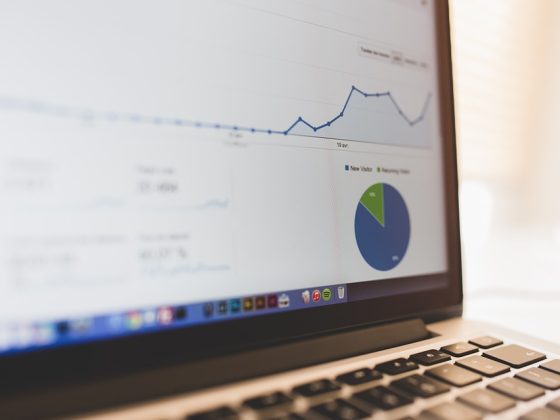end.
The Future of Business Analytics: Trends to Watch in the Coming Years
In today's fast-paced and competitive business environment, data has become a critical asset for organizations looking to gain a competitive edge. As a result, business analytics has emerged as a key tool for extracting insights from vast amounts of data to drive strategic decisions and improve business performance. With advancements in technology and the increasing availability of data, the field of business analytics is poised for significant growth in the coming years. Here are some key trends to watch in the future of business analytics:
1. Artificial Intelligence and Machine Learning: Artificial intelligence (AI) and machine learning are revolutionizing the field of business analytics by enabling organizations to automate the process of data analysis and gain deeper insights from large datasets. AI-powered algorithms can identify patterns, detect anomalies, and predict future outcomes with a high degree of accuracy, enabling businesses to make smarter decisions and optimize their operations.
2. Predictive Analytics: Predictive analytics is the practice of using historical data to forecast future trends and outcomes. In the future, predictive analytics will become even more sophisticated, leveraging AI and machine learning algorithms to deliver more accurate and actionable insights. Organizations will be able to anticipate market trends, customer behavior, and operational issues, enabling them to proactively respond to changing conditions and stay ahead of the competition.
3. Real-time Analytics: Real-time analytics is becoming increasingly important as organizations seek to make faster decisions based on up-to-the-minute data. In the future, real-time analytics will become more accessible and affordable, thanks to advancements in cloud computing and data processing technologies. Businesses will be able to monitor and analyze data streams in real-time, enabling them to respond quickly to changing conditions and opportunities.
4. Data Visualization and Storytelling: Data visualization is a powerful tool for communicating insights and information in a clear and compelling way. In the future, data visualization tools will become more sophisticated, enabling businesses to create interactive dashboards, infographics, and reports that help stakeholders understand complex datasets and make informed decisions. Storytelling techniques will also play a key role in business analytics, helping organizations to contextualize data and communicate its implications to a wide range of audiences.
5. Data Privacy and Security: With the increasing volume of data being collected and analyzed by organizations, data privacy and security have become critical concerns. In the future, businesses will need to invest in robust data governance practices, encryption technologies, and secure data storage solutions to protect sensitive information and comply with regulations such as GDPR and CCPA. Trust and transparency will be key drivers of success in the field of business analytics, as consumers and stakeholders demand greater accountability in how their data is collected and used.
6. Democratization of Analytics: As business analytics becomes more pervasive across organizations, there is a growing demand for self-service analytics tools that empower non-technical users to access and analyze data on their own. In the future, businesses will invest in user-friendly analytics platforms that enable employees at all levels to explore data, generate insights, and make data-driven decisions. This democratization of analytics will foster a culture of data-driven decision-making and innovation throughout the organization.
7. Industry-specific Analytics Solutions: In the future, we can expect to see a proliferation of industry-specific analytics solutions tailored to the unique needs and challenges of different sectors. Whether it's healthcare, retail, finance, or manufacturing, businesses will benefit from specialized analytics tools that address the specific requirements of their industry. These solutions will help organizations streamline operations, improve customer engagement, and drive growth by leveraging industry best practices and benchmarks.
FAQs:
Q: What are the benefits of using business analytics in my organization?
A: Business analytics can help organizations gain insights into their operations, customers, and market trends, enabling them to make data-driven decisions that drive growth and improve efficiency. By leveraging data analytics, businesses can identify opportunities for improvement, optimize processes, and stay competitive in today's fast-paced business environment.
Q: How can I get started with business analytics in my organization?
A: To get started with business analytics, organizations should invest in the right tools and technologies, build a data-driven culture, and train employees in data analysis skills. It's also important to define clear objectives and KPIs for your analytics initiatives, so you can measure the impact of your efforts and make informed decisions based on data.
Q: What are the key challenges facing businesses in implementing business analytics?
A: Some of the key challenges facing businesses in implementing business analytics include data silos, lack of skilled talent, and resistance to change. To overcome these challenges, organizations should invest in data integration solutions, provide training for employees, and communicate the benefits of analytics initiatives to stakeholders. By addressing these challenges proactively, businesses can unlock the full potential of business analytics and drive success in the digital age.
In conclusion, the future of business analytics is bright, with exciting developments on the horizon that will enable organizations to extract more value from their data and drive growth and innovation. By staying abreast of the latest trends and technologies in the field of business analytics, organizations can gain a competitive edge and stay ahead of the curve in the rapidly evolving business landscape.











